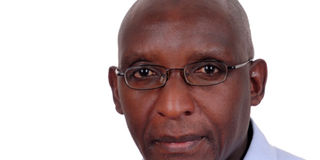Prime
Monitor@30: Best place for good opinion writers

Dr Okodan Akwap is a lecturer at Kampala International University.
What you need to know:
...the paper should remain alive to issues of the day. That’s the path to good journalism
I wrote my first article for Monitor Publications Limited (MPL) in February 1998. I had just returned from the US. It was 12 years after The People –the UPC newspaper I had served as a reporter – collapsed following the July 1985 coup. I needed to catch up with so many things.
Quickly, I visited two senior editors: David Sseppuuya of The New Vision and Charles Onyango-Obbo of The Monitor. Interestingly, both suggested I write an article on what I felt was different from the last time I was home. I chose to write it for The Monitor.
Understandably, Sseppuuya was disappointed; he suggested first. (Later, I wrote two pieces for Vision on US President Bill Clinton’s imminent visit to Uganda and on Kofi Annan’s appointment as UN Secretary General.)
Titled, ‘Making sense of Uganda after a 12-year absence,’ the article was published in Sunday Monitor, then edited by the late Richard Tebere. Tebere told me he was happy with the article. It showed in the thin smile he allowed to relax the edges of his lips as he talked about it.
I wrote about amazing new things I saw. For example, I marvelled at the physical transformation of Namuwongo – where MPL is based – from a big residential slum housing diverse ethnic communities to a true urban-renewal suburb. I mentioned that it was the place we used to go and have lunch in the early 1980s because The People was located on Fifth Street, Industrial Area.
“Good job”, Tebere said. My relationship with The Monitor began on that “good” note. A month or so later I was offered a job as an assistant editor in-charge of foreign news, a responsibility I shared with Joseph Were. I also started to write opinion pieces in the paper. All were published.
I was there when MPL signed a memorandum of understanding with Nation Media Group on April 30, 1999. (Later, The Monitor became Daily Monitor.) Around July 1999 I left to join The New Vision as a business writer. Unbelievably – because of the rivalry between the two papers – I continued to submit opinion pieces to The Monitor.
The paper was – and still is – the best place in Uganda for good opinion writers to express themselves through topical, analytical, tightly-written and impactful articles. I’ve heard even a non-enthusiast for the paper, Tamale Mirundi, a former press secretary to the President, say on NBS TV: “Monitor is critical. I read it.” Many others appreciate the personal judgments, the value judgments, and the moral judgments Daily Monitor’s op-ed pages offer.
Opinion journalism is my thing. That’s why I’ve submitted dozens of opinion pieces to this paper. Of course, not all have been published. That doesn’t dishearten me. As a journalist, I know that editors decide what runs in their paper.
Similarly, I’ve never cared much about payment. But in 2015 or thereabouts when Margaret Vuchiri was in charge of the opinion pages, I raised this matter. I started getting token payment. But Covid-19 came along and I was back to labour-of-love status as the paper struggled to cope.
My proudest moment with Daily Monitor was in early 2006. The talk of town then was about the prospect of a regional political federation. President Museveni was happily talking about “fast-tracking” it. But two of us wrote opinion articles questioning the logic of such thinking. Prof Patrick Asea (RIP), an economist, wrote in New Vision. Daily Monitor gave me space.
My articles were: ‘East African Community an excuse for Museveni to continue clinging on,’ (January 12, 2006). ‘Tanzania may be holding the front door key to East African federation’ (January 18, 2006). ‘Turning the spirit of East African cooperation into a campaign issue’ (January 24, 2006). ‘Fast tracking regional integration may cause tension in East Africa’ (January 31, 2006). And, ‘The way forward for the East African Community is to take in the Sudan’ (February 6, 2006). That’s how Monitor made me stand out on a big issue of the day.
Clearly, the paper should remain alive to issues of the day. That’s the path to good journalism.
Dr Akwap (PhD) is an associate consultant at Uganda Management Institute.



